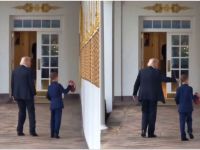Baghdad on Wednesday rejected US accusations that it possesses biological weapons, saying the charge was aimed at paving the way for a US attack on Iraq once Washington had wrapped up its war on Afghanistan.
"This campaign ... aims at preparing the climate in and outside the United States for an aggression against Iraq after the end (of the war) in Afghanistan," Salem al-Kubaisi, who heads the Iraqi parliament's Arab and international relations committee, told AFP.
Washington's claim was also aimed at setting the stage at the UN Security Council for issuing a resolution hostile to Iraq when the council discusses the renewal of Baghdad's "oil-for-food" program with the UN later this month, Kubaisi said.
The United States this week accused Iran, Iraq, Libya, North Korea, Sudan and Syria of violating the 1972 Biological Weapons Convention (BWC), which bans the development, stockpiling and use of biological weapons, by developing a germ warfare capability.
"The United States strongly suspects Iraq of having profited from an absence of UN inspectors for three years to step up a gear in all the stages of its program for offensive biological weapons," US representative John Bolton told the convention's 144 member states in Geneva on Monday.
Even the reports drafted by "the spies of the buried Special Commission confirm that Iraq is free of (biological) weapons," Kubaisi said in a reference to the now-defunct UN Special Commission (UNSCOM) that was in charge of Iraq's disarmament until its inspectors pulled out of the country in December 1998.
Iraq consistently accused some of UNSCOM's experts of spying on behalf of the United States.
US claims that Iraq is developing a germ warfare capability follow Washington's "failure to establish a link between the anthrax attacks (in the US) and Iraq," according to Kubaisi.
All US statements indicate that "their aggressive acts in Afghanistan are but the first phase that will be followed by other phases," the Iraqi official said.
"They (Americans) are looking for a state ... whose interests clash with those of the US administration" to be their next target, and "it is only normal that Iraq, whose interests clash with the Americans' aggressive schemes, should be among the first countries targeted in future," he added.
Washington has indicated it will pursue its anti-terror campaign after the end of the war in Afghanistan – Baghdad (AFP)
© 2001 Al Bawaba (www.albawaba.com)







